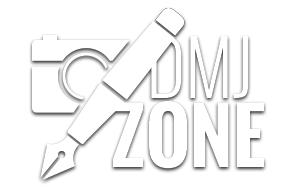A LOOK AT THE MANY WAYS COVID-19 HAS AFFECTED CANADIAN PUBLISHERS AND AUTHORS.
By Sara Mathov-Olszewicki
Many people who are reading as a hobby during the pandemic may not realize all of the processes their print, audio or ebook had to go through, especially this year. The publishing industry has had to change and adapt quickly.
Lisa Quinn, director of Wilfrid Laurier University Press, in Waterloo, Ont., says the biggest impact concerns supply chains.
“It’s physical production, but also digital production and distribution, and how we’re managing that,” says Quinn. “And, the impact that has had on marketing and publicity plans.”
As a scholarly press, another challenge has been that the majority of their authors are faculty members, who have been busy focusing on the rapid transition to remote teaching. “Their time to write their own books, edit books, act as peer reviewers…that time has become more precious,” says Quinn.
Quinn says publishing is about predicting trends across the market, and with physical spaces closing, this is harder to do.
“I have likened it at times to business planning by crystal ball,” she says.
Quinn says one of the biggest sections affected was the audiobook program. Before the pandemic, the press was recording its first 10 audiobooks. But production stopped when recording studios closed. “It was like we walked off the cliff,” she says.
Matt Bowes, general manager of NeWest Press, a non-profit publishing company in Edmonton, says smaller publishing houses have been particularly hit hard.
“It’s all been pretty difficult, but not insurmountable as of yet, and we got a lot of support from the federal government,” says Bowes.
Many publishers decided to delay launches and even cancel projects, according to Bowes. NeWest Press delayed all fall books by about a month but chose not to cancel any releases. “You got to have something out there, you’ve got to keep swinging,” he says, especially for smaller publishers.
The biggest loss across the industry were launches and events. Many publishers held events virtually, but as Bowes points out, people can get “Zoom fatigue” quickly.
“It’s a web of stuff that radiates outward,” says Bowes. “The ability to get readers next to authors and have them speak, we’re really missing out on that.” Bowes says hand-selling after hearing a poet speak and festivals really drive sales.
The transition to virtual learning and events has led many Canadians to use ebooks and e-readers across Canada. But, according to Quinn, the demand for print books is still there.
“Balance is shifting month to month, depending on points of access,” she says. Whether bookstores are actually open, supply chain issues and retail partners are all factors.
Cara Cochrane, digital assets coordinator at Harlequin, in Toronto, says she has seen a boom in ebook sales since the pandemic started.
“I don’t know necessarily that one is overtaking the other,” she says. “A lot of it is just personal preference, and some people still read both types of media.”
Cochrane says many printers shut down earlier in the year, and Harlequin had to switch to using overseas printers, mainly in Europe, which has made distribution slower in Canada.
Chenise Jones, content sales co-ordinator for ebooks at Kobo, in Toronto, says 2020 is the company’s most profitable year.
“We saw a lot of traffic … we’ve sold the most devices this year,” she says. “We were thriving because we’re something for people to do.”
Jones says Kobo Writing Life, a branch of Kobo that allows authors to self-publish, has become popular because of how fast the process is compared to going through traditional publishers.
When a publisher acquires a book, they do a profit-and-loss calculation to determine how many copies should be printed. Almost always, the ebook version is made because there are lower production costs, according to Cochrane.
“It’s just sort of a gamble between how well you can market yourself and how well you think someone else could,” says Cochrane.
With ebook formatting comes risks of illegal sharing and copyright issues. Nicole Crimi, a self-published children’s author, decided not to create an ebook format for this reason.
“An ebook is a good idea if you’re trying to reach more people, it’s more affordable,” says Crimi. “But, there’s a risk of it being distributed for free.”
In response to the pandemic, the Internet Archive created the National Emergency Library, so students could access texts from home. They are now also at the centre of a lawsuit, filed by many large publishers including HarperCollins, claiming mass copyright infringement.
Another issue that the industry has faced for years is a lack of BIPOC representation among authors and large publishers.
Natasha Shaikh, assistant digital marketing manager at HarperCollins Canada, in Toronto, says the industry is slow-moving.
“What a lot of companies are missing are BIPOC specifically at the top that can direct a lot of structural changes from within,” says Shaikh.
Shaikh says they have run campaigns to bring in more Black voices and they’ve had a positive response.
“The company doesn’t know what’s missing until the audience says something is missing,” she says.

